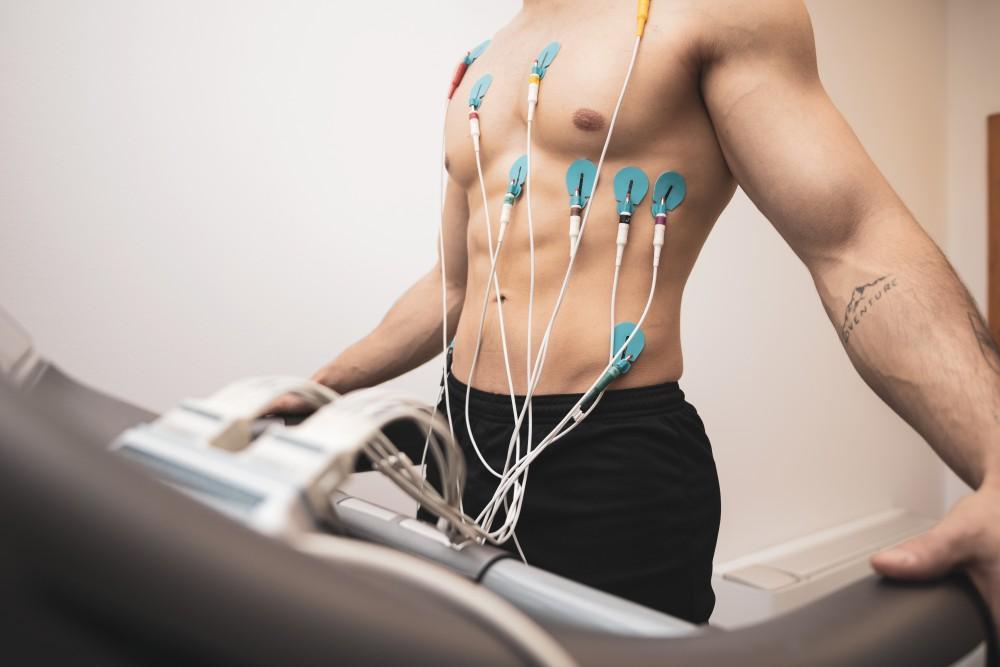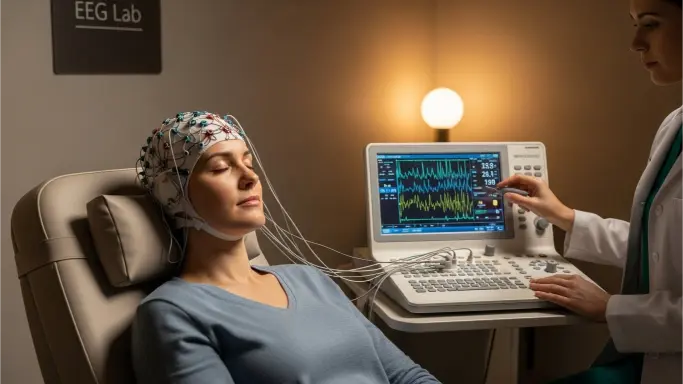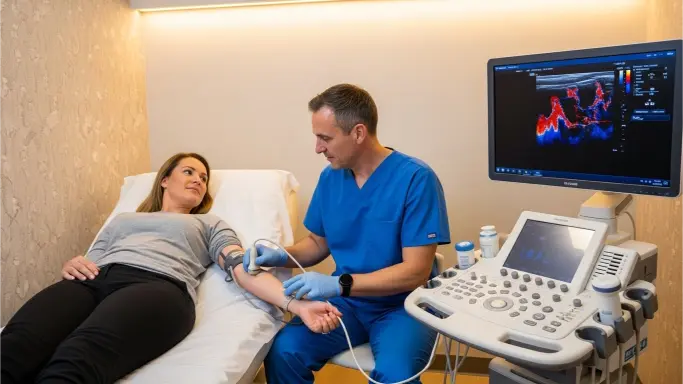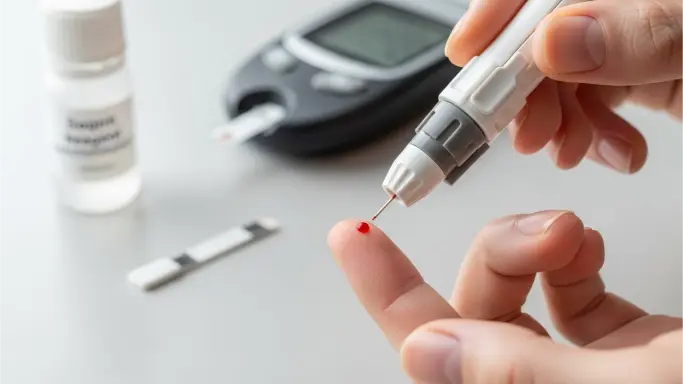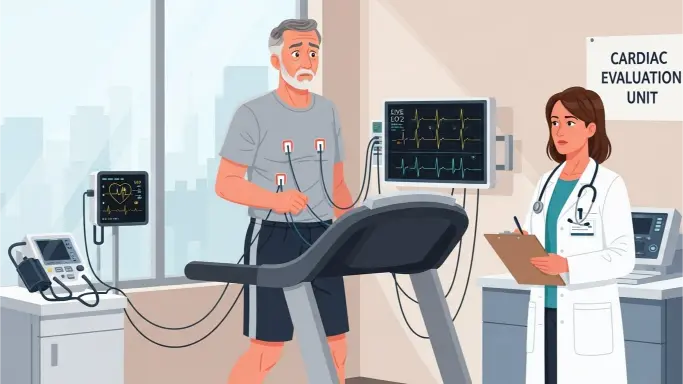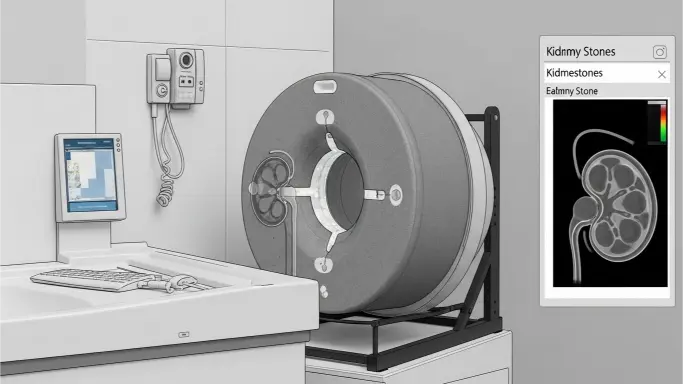Cardiovascular health is one of the most vital aspects of wellbeing—especially for adults over 40, those with risk factors, or anyone experiencing unexplained symptoms. If you’re in Bangalore and a doctor recommends a treadmill stress test in Bangalore, you’re likely wondering: When is it necessary? What symptoms count? And how much does it cost? This detailed guide helps you identify when to get a stress test, what it reveals, and how it intersects with treadmill test cost in Bangalore to empower your choices.
1. What Is a Treadmill Stress Test?
A treadmill stress test, often called TMT or exercise stress test, evaluates how your heart performs under physical stress. You walk on a treadmill with increasing speed and incline while wearing ECG leads and blood pressure monitors. Based on protocols like the standard Bruce method, the test typically lasts 10–15 minutes, followed by a cooldown period.
The primary purpose is to detect inducible ischemia a gap between your heart’s need for blood and what it receives during exertion.
2. Primary Indications: Don’t Ignore These Signs
According to ACCF/AHA and American Family Physician:
- Chest pain or discomfort with activity—especially if it eases with rest
- Shortness of breath during exertion, not explained by lung issues
- Unexplained fatigue or dizziness during exercise or daily tasks
- Palpitations or irregular heartbeat, new-onset or worsening
- Pre-operative evaluation before vascular surgery or high-risk surgery
Exercise stress testing is most helpful for patients with intermediate pre-test probability—meaning symptoms or risk factors that could indicate heart disease.
3. Secondary Uses: When It Adds Value
a. Evaluate Functional Capacity & Fitness
The treadmill stress test can show exercise tolerance—key in cardiac rehab, managing heart failure, or prescribing safe exercise programs.
b. Monitor Known Heart Conditions
It gauges progression in known coronary artery disease, valvular disease, or arrhythmias. It may also evaluate therapy effectiveness post-angioplasty or bypass.
c. Rule Out Heart Disease in Ambiguous Cases
Tobuestsuch as unexplained syncope, high-risk factors, or ECG anomalies can justify a stress test.
4. Contraindications: When to Avoid the Test
Absolute contraindications include:
- Recent heart attack (<48 hours)
- Unstable angina
- Severe left main coronary stenosis or aortic stenosis
- Uncontrolled arrhythmias or hypertensive crisis
Relative ones include severe pulmonary hypertension, uncontrolled asthma, or musculoskeletal limitations—discuss with your doctor if unsure.
5. Safety and Risks
The test is generally safe, with serious complications like heart attack or ventricular arrhythmias occurring in about 1 in 10,000 tests. That’s why it’s conducted under medical supervision, with emergency equipment on hand.
6. Interpreting Results: What It Tells Us
Results include:
- ECG changes indicating ischemia—ST-segment depression or elevation
- Heart rate and blood pressure response; failure to rise or drop may signal problems
- Exercise capacity, measured in METs—key prognostic indicator
- Symptoms reported during test—chest pain, breathlessness
Negative result suggests low likelihood of CAD—but false negatives can occur, especially in women or ECG baseline abnormality.
7. Treadmill Test Cost in Bangalore
Understanding the treadmill test cost in Bangalore helps with planning. Pricing varies on:
- Basic ECG-TMT
- Diagnostic labs like Ecotown Diagnostics offer full-service TMT including consultation and reporting
Higher-tier centers or additional imaging (e.g., stress echo or nuclear) can cost more, but standard stress tests remain affordable in Bangalore.
8. What to Expect: Preparation & Process
Pre-Test Preparation:
- Skip heavy meals, caffeine, and smoking for 2–4 hours
- Discuss medications—some (like beta-blockers) may interfere, but consult your physician
- Wear comfortable clothing and walking shoes
During the Test:
- ECG electrodes are placed on chest, arms, legs
- Treadmill begins slow, increasing every 3 minutes per Bruce protocol
- Continuous monitoring for ECG changes, blood pressure, heart rate, and symptoms
- Test stops when target heart rate is reached, or if symptoms/ECG changes occur
After the Test:
- 10–15 minute recovery monitoring
- Results discussed by cardiologist; further tests ordered if needed
Total time in clinic: about 30–45 minutes.
9. When to Repeat the Test
Retesting may be advised if:
- New symptoms develop
- Treatment modifications need reassessment
- Pre-op clearance requires updated assessment
However, routine annual testing without indication isn’t recommended.
10. Choosing a Provider in Bangalore
When searching for treadmill stress test in Bangalore, consider:
- Modern equipment and staff trained in emergency response
- Full-service sites including ECG, consultation, and test reporting
- Transparent treadmill test cost in Bangalore, without hidden fees
- Accreditation (NABL/IGI) or lab network presence (e.g., MFine, Ecotown)
- Insurance coverage—many plans include diagnostic tests
11. FAQs at a Glance
- Does the test hurt? No—it may cause fatigue, breathlessness, or mild chest tightness. You can stop anytime.
- Is age a concern? No—it’s used for teens to seniors, if they can physically exercise.
- Is it covered by insurance? Often, yes—check your policy and diagnostic center terms.
- What if I can’t exercise well? A pharmacologic stress test (using medication) may be offered instead.
12. Final Takeaway
A treadmill stress test in Bangalore is a valuable, safe, and mostly affordable diagnostic tool—especially for detecting coronary issues, guiding rehab, or clearing for surgery. If you’re experiencing chest discomfort, unexplained fatigue, or other symptoms, don’t delay. The RSVP symptoms workbook of cardiovascular care starts here. Pair that with knowledge about treadmill test cost in Bangalore, and you’re better equipped to make the right health decision.

